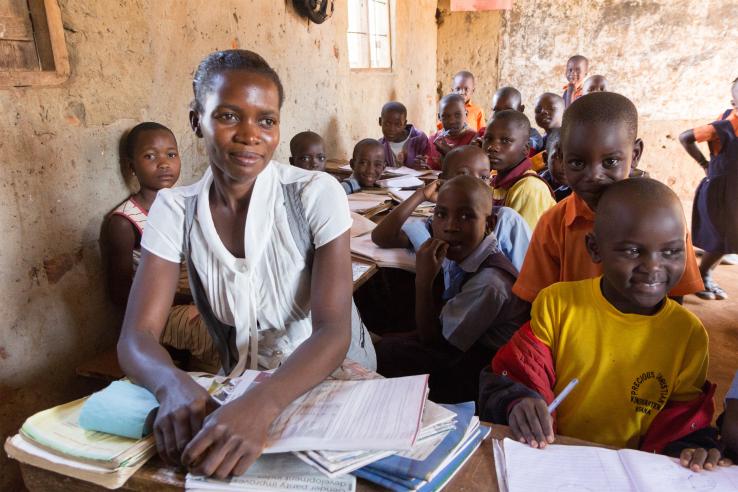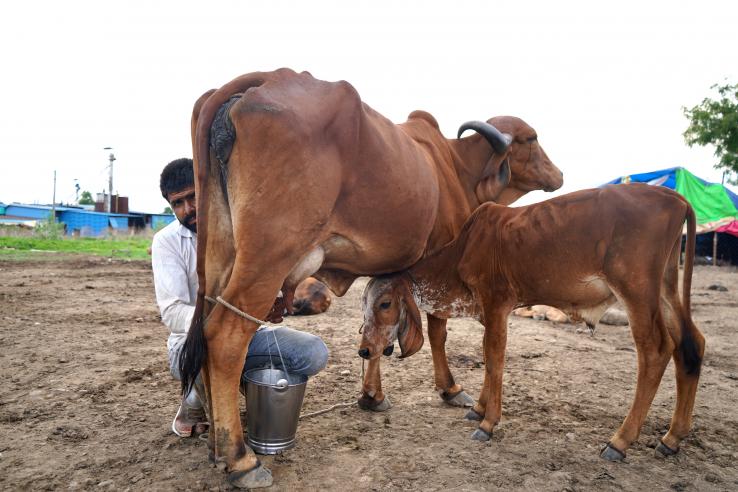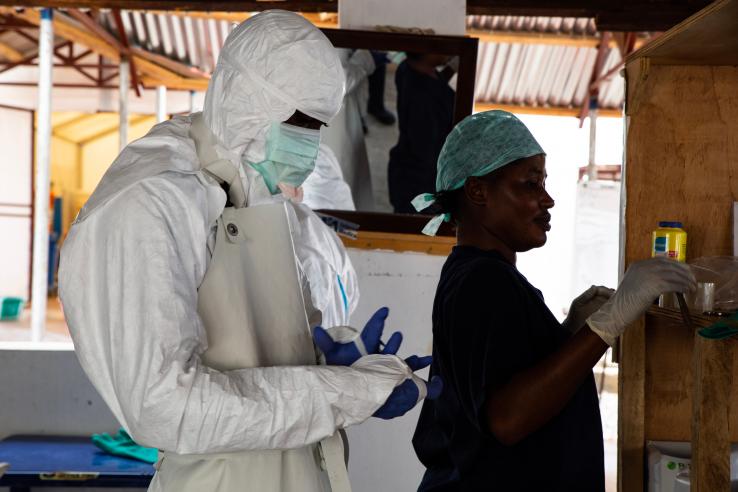Displaying 4846 - 4860 of 8445
Evaluation
Researchers evaluated the impact of access to a package of free dental services on employment levels for urban residents of Santiago, Chile. Results found that participants with access to these services had better dental health, and that self-esteem and short-term employment increased among women, particularly those who had previously been missing front teeth or with lower levels of self-esteem.
Evaluation
Researchers evaluated whether an alternative teacher incentive scheme, providing rewards based on the performance of all students, could help reduce dropout and improve student math learning. Introducing the pay-for-percentile incentive scheme reduced overall student dropout rates. However, these reductions were driven almost entirely by students at intervention schools with math textbooks. Among schools with math books, the incentive scheme also improved the math achievement for higher performing students.
Evaluation
Researchers are measuring the impact of a quiz-style information strategy on people’s learning and adherence to Covid-19 health protocols. This study is part of a three-country research program in Ghana, the US, and Zambia aiming to find evidence on the best strategies to communicate health measures.
Evaluation
Researchers are measuring the impact of a quiz-style information campaign on people’s learning and adherence to Covid-19 health protocols. This study is part of a three-country research in the United States, Ghana, and Zambia program aiming to generate evidence on the best strategies to effectively communicate health measures.
Evaluation
Researchers are measuring the impact of a peer information sharing strategy on people’s learning and adherence to Covid-19 health protocols. This study is part of a three-country research program in Zambia, Ghana, and the US aiming to find evidence on the most effective strategies to communicate health measures.
Evaluation
Much economic activity in low-income countries takes place through cooperative or collective organizations. Researchers in the Indian state of Karnataka conducted a randomized evaluation to study whether collective incentive payments to village cooperatives of dairy farmers could increase milk quality by reducing microbial contamination. Incentive payments increased cleanliness and point to the importance of leadership and social networks in cooperative production. However, a third of cooperative managers declined payments when they had to publicly disclose them.
Evaluation
Researchers conducted three randomized evaluations to measure the degree of competition among wholesale maize traders, understand the implications for social welfare, and test whether new traders could make a market more competitive. Researchers found that traders did not pass through much of a randomly administered cost reduction by lowering prices to consumers and, instead, colluded with other traders to maximize their profits.
Evaluation
Researchers partnered with a large payday lender in Indiana to conduct an evaluation to better understand consumers’ decision-making. The results suggest that average borrowers can anticipate their probability of taking loans in the future. However, people focus too much on the present when making decisions about payday loans, a behavior that they would like to change.
Evaluation
Responsive governments have the ability to make laws and decisions that reflect their constituents’ preferences. However, legislators may lack necessary information about constituents’ opinions and may therefore be unable to meet their demands. Researchers measured whether providing targeted information about citizens’ and firms’ preferences to members of the Vietnamese National Assembly (VNA) increased legislators’ responsiveness. VNA delegates who received information about their citizens’ preferences were more prepared and likely to speak in debates ; however, delegates did not appear to be responsive to information about local firms’ preferences. In addition, delegates grew more responsive as other delegates received the same information.
Evaluation
Using data from a previous randomized evaluation in rural India that tested the effect of asset transfers to low-income households on overall consumption, researchers analyzed whether an increase in household wealth led to changes in energy use. While households consumed significantly more energy after the asset transfer, they did not reduce their use of dirty fuels.
Evaluation
Researchers partnered with the Government of Sierra Leone to evaluate the impact of community monitoring and nonfinancial awards programs on health care utilization and health outcomes. Both programs improved clinic utilization, patient satisfaction, and symptom reporting during the 2014 Ebola crisis. Further, community monitoring improved child health and reduced mortality among Ebola patients.
Evaluation
Researchers are conducting a randomized evaluation to test the impact of providing a new technology--smart meters--on consumer payments and service quality. Research is ongoing; results are forthcoming.
Evaluation
In partnership with the Ministry of Agriculture of the Democratic Republic of Congo and the World Bank, researchers are investigating how subsidizing the cost of and access to improved seeds affects smallholder farmers’ take-up of improved seeds, their short-term agricultural productivity, and household welfare.
Evaluation
Resistance to change can prevent medical practitioners from providing their patients with the best possible care. Within the context of an existing results-based financing program in public health clinics in Argentina, researchers evaluated the impact of a temporary increase in price incentives on the quality of prenatal care provision. Temporary incentive increases led to improvements in care provision that outlasted the increase, but did not improve birth outcomes among treated pregnant mothers.
Evaluation
Researchers conducted a randomized evaluation in Colombia to assess the effects of emergency cash assistance on the well-being of households. Recipients of the UCT experienced improved financial health, food access, and psychological well-being. Colombia’s newly implemented mobile money system allowed for quick fund disbursement, but its effectiveness for vulnerable populations may have been weakened by nascent digital systems.








